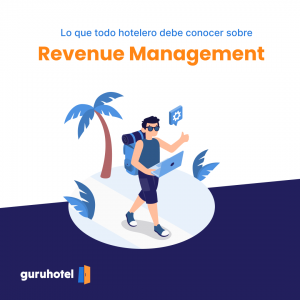They say that if you are not on the internet, you do not exist. And this popular saying can also be applied in a similar way when you are on the internet but do not have a presence in search engines, when other people cannot or do locate you, but do not have enough references.
Applying this logic to your hotel, Gaining a presence and building a good reputation online is as important as the physical experience you offer your customers. Local SEO is a fundamental aspect if your objectives are to compete within the market, interact with an increasing number of clients, reach them in a more optimal way and inspire confidence in users to become your guests.
If SEO (Search Engine Optimization) is the set of tools that you can apply to position yourself through metadata in Google searches, local SEO is applied to the location of your hotel on Google Maps. How? In very general terms, users enter keywords related to your hotel and, if you have done a good previous job of local SEO, then it will be much easier for them to find you. If, on the contrary, your hotel website is not optimized for local searches, then you will have 3 things for sure:
1. You will get lost among hundreds of hotels that do appear in searches.
2. Your clients will miss out on the experience of knowing your hotel.
3. You will lose clients, many clients.
That is, you lose, they lose, everyone loses.
As we know that your goal is to boost your hotel reservations, this time we will see some tips, focused on online positioning, that you can apply once you finish reading them.
1. Determine the keywords with which you want your hotel to be located
Googling is like asking a question. If we ask the right questions, we will get accurate answers; If you create a web of what those questions or searches could be on the part of users, it will be much easier for them to find you. This first step is a research phase: what are the correct keywords for my hotel? Asking yourself this question will help you identify the words with which you can generate organic traffic to your site. Consider that, behind these searches, you will find two possible intentions on the part of users:
When users want to buy:
An example of these keywords could be "cheap hotel in Holbox" or "pet friendly hotel Puerto Escondido". These types of targeted searches reveal that prospects already have a purchase intention and are very likely ready to buy as soon as they find you.
When users want information:
If users' searches consist, for example, of words like “list of best hotels in Mérida” or “4-star hotels in Puebla”, it is very likely that they are only researching and that they are not yet ready to make a purchase decision .
One way to research these keywords is through tools like Keyword Planner, from Google, or Google Trends. The method consists in that, once identified, you integrate them strategically on your website, either through the descriptions of your services or in a blog section ... the possibilities are many!
2. Offer local content near you on your website
How many times did you find it difficult to find the perfect vacation plan, depending on your accommodation? Would you like to give your customers greater satisfaction by providing them with local content? It is as if you offer yourself as a tourist guide without having to leave.
From your hotel's website, you can link to the most relevant nearby sites and inform your potential clients about what they will find around your facilities: cultural centers, bars, restaurants, nearby museums, special activities. It is not the same to see a beautiful and comfortable hotel advertised, without references to what is around it, than to find out within the same site that, one block away, a planetarium is located and, in front, a theater. Better yet: if you delve, for example, into the billboards of the nearby cultural centers or the programming of the activities of other places, your prospects will be more attracted to staying with you.
You can integrate a special page within your site, dedicated to places and activities of tourist interest, or recommend in periodic entries some of the places to go shopping. In this way, you will improve the ranking of your hotel in local searches and, at the same time, inform your visitors about what to do. You will surely save them one or more steps when planning their itinerary.
3. Add your website to the main directories
This task towards a better local SEO positioning consists of looking for the most relevant directories on the web, such as TripAdvisor, the Yellow Section, Yelp, Foursquare and other sites that may include hotel listings.
In them you must register the name of your hotel, its address, its contact number and website. In this way, search engines will target you and help users to trust your site more. Very simple, right?
4. Get people talking about you!
One way to build a reputation on the internet is by encouraging visitors to rate your service and talk about their experience visiting your facilities. By getting positive reviews, you will inspire more confidence in other users, and this will help you to stand out in the search engines. We recommend that you send your clients an email with a link to your profile Google My Business, asking them to make an assessment and talk about their hosting experience.
If you want to get the most out of your website and make your hotel generate a positive impact on the internet, this series of tools focused on local SEO will help you stand out from the rest.
Take into account that these tips are not used: following the strategies requires perseverance. But if you think that leaving it in the hands of an expert is the best option, GuruHotel can do all this for you. Once your hotel becomes part of our digital hotel chain, we will integrate these and more local SEO tools to your direct channel. This means that the website that we will deliver to you will have all these tasks solved, including optimizing Google My Business, and you will only have to worry about making your guests' experience unique.







